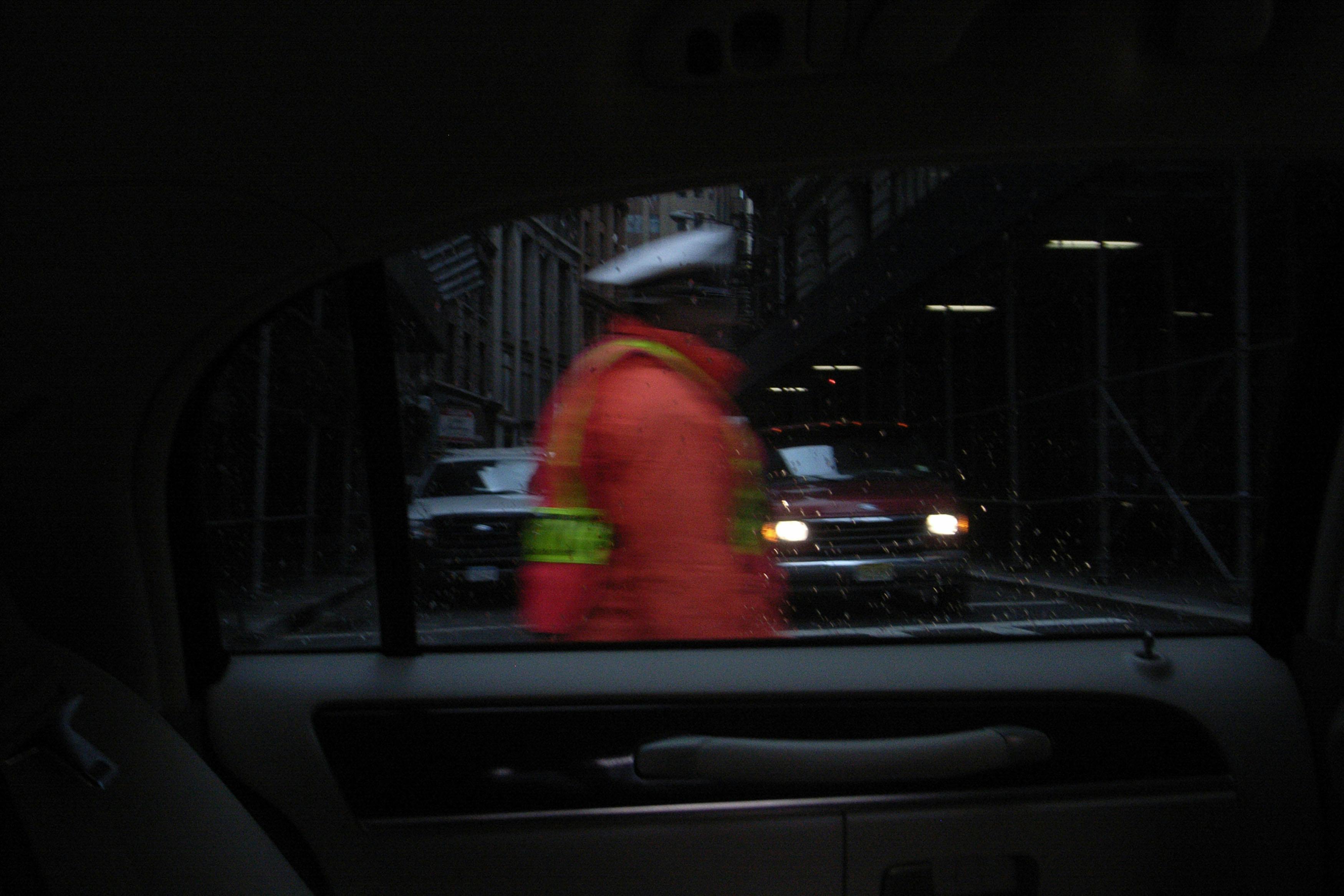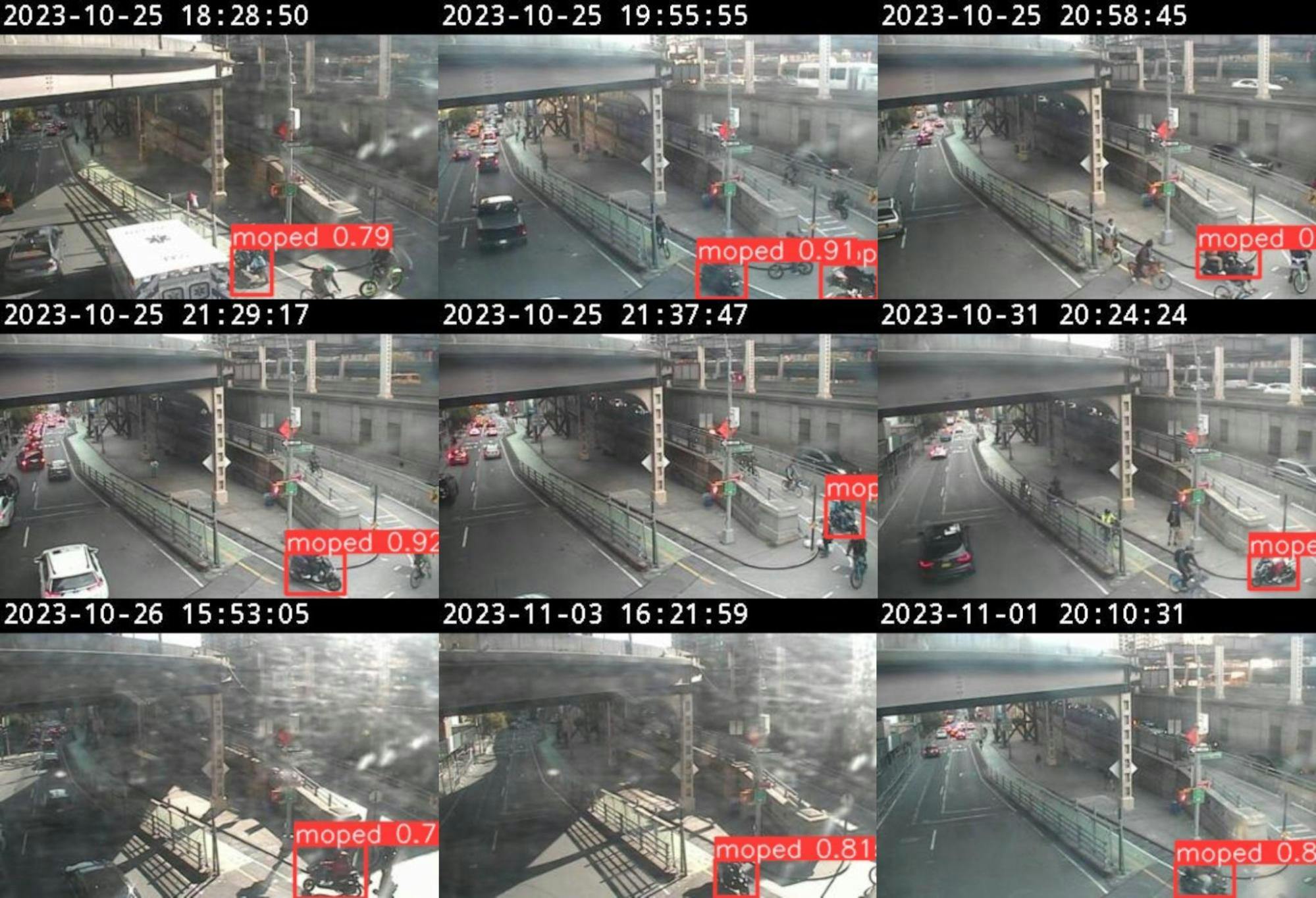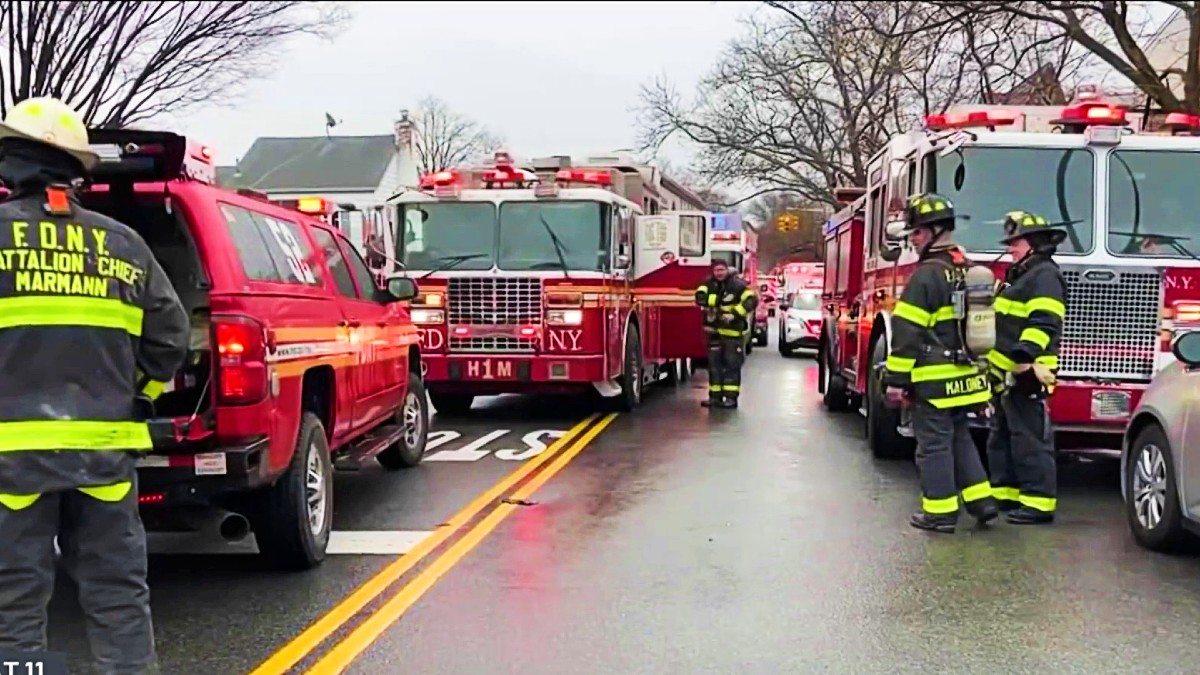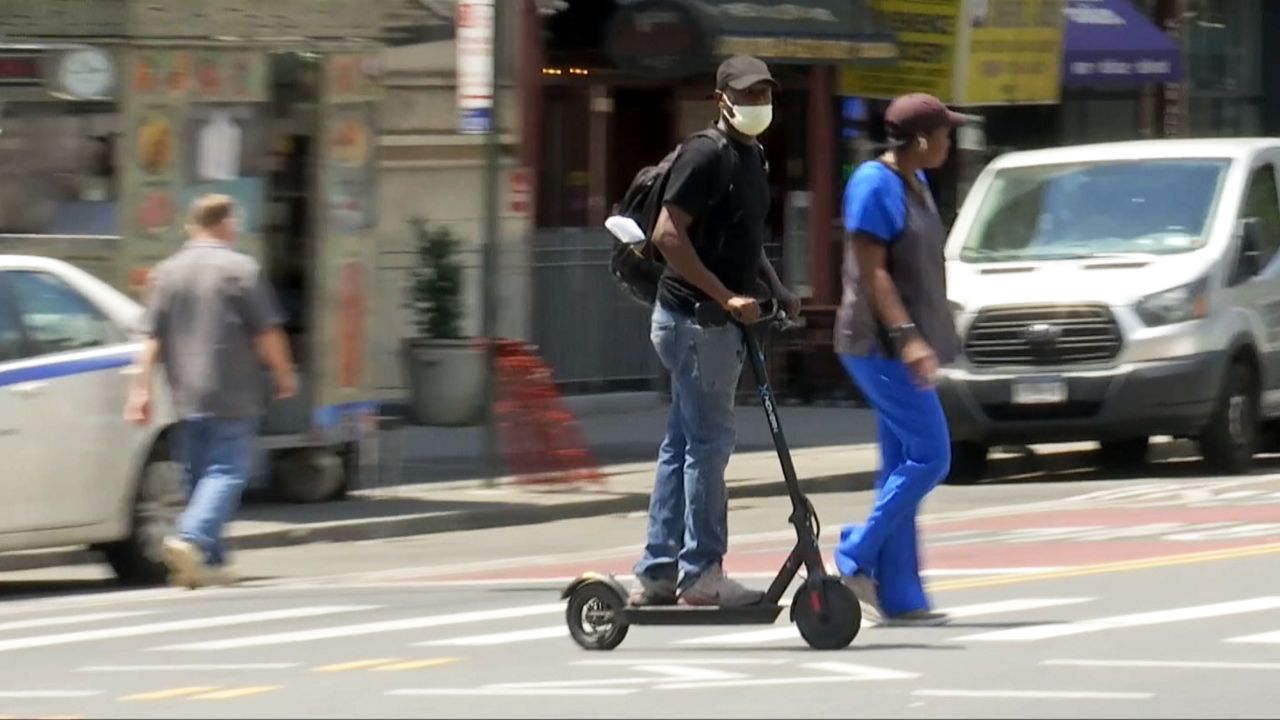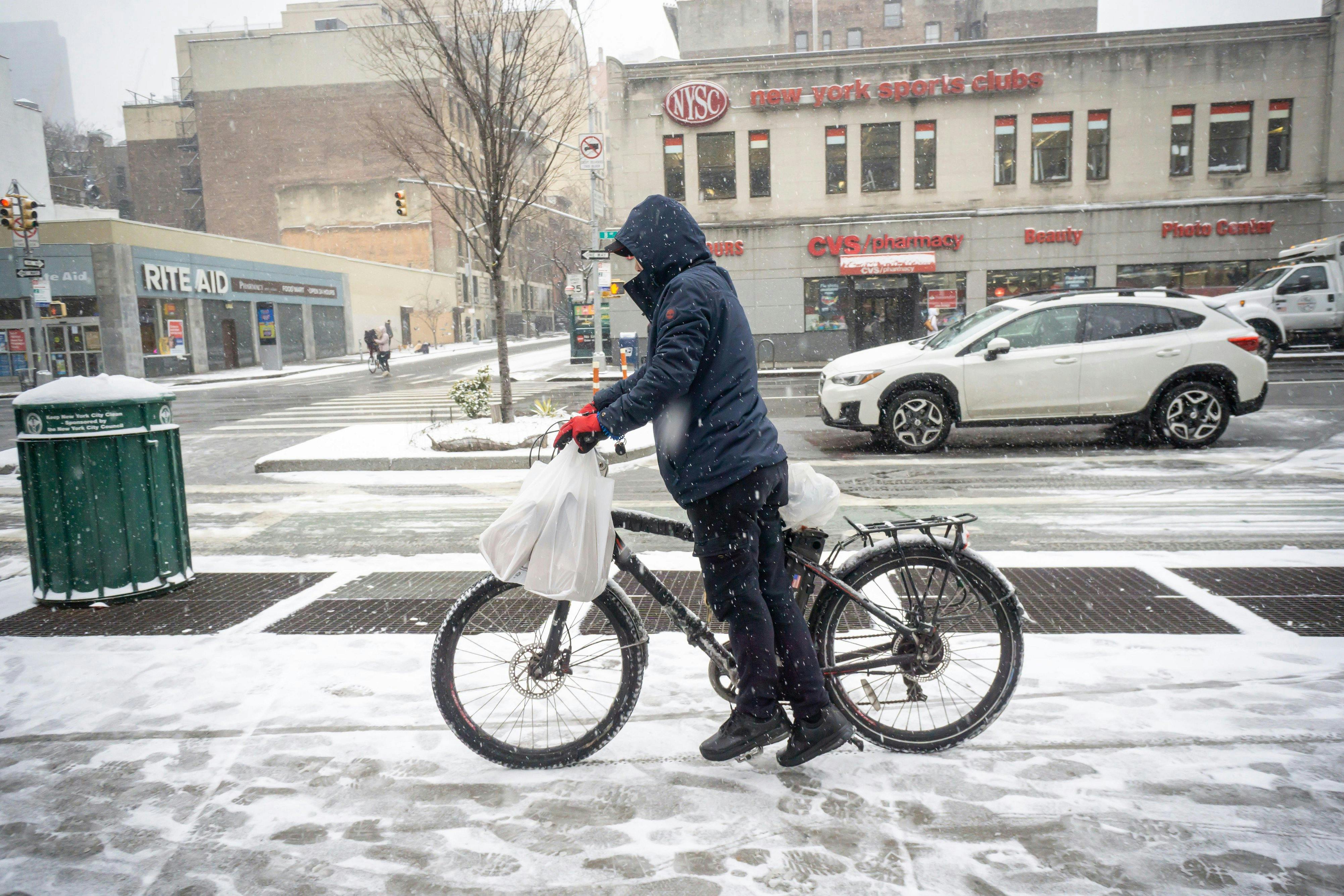
Vital City | Hot Food, Burning Buildings, Greedy Companies, Weak Government
Behind e-bike battery fires is a city administration unwilling to attack the problem.
Hot Food, Burning Buildings, Greedy Companies, Weak Government
HARRY SIEGEL
NOVEMBER 29, 2023
Behind e-bike battery fires is a city administration unwilling to attack the problem.
The reason that fire deaths are up is the same reason that traffic deaths are up is the same reason that many New Yorkers feel agita crossing the street now.
The reason is the e-bikes that were legalized in New York State and City in 2020, just before these waves of migrants started arriving, to help the deeply sympathetic deliveristas laboring as supposedly independent contractors for the impossibly unsympathetic delivery apps in yet another example of how New York’s Democratic establishment can’t seem to do the right thing the right way.
There have been 17 civilian deaths since April 2023 in fires sparked by these bikes’ batteries, accounting for nearly a third of all fire deaths and putting the city on pace for a second straight fiscal year with over 100 such deaths for the first time in decades.
Another 20 people died last year riding e-bikes, as delivery workers on them move continually between sidewalks, bike lanes and car lanes.
The pain, of course, isn’t spread evenly around the city but is deeply inequitable. E-bike fires are now killing more New Yorkers than electrical fires, and they are mostly killing New Yorkers in lower-rent places where people trying to eke out livings charge their bootleg and busted batteries that explode like bombs in their own outlets, putting their own lives and those of their neighbors at risk.
Ironically enough, the NYPD is seizing bikes, as the term is commonly understood, even as many delivery people, including migrants, without work permits now prefer gas-powered mopeds that often aren’t street legal — though what enforcement there is seems mostly pretextual. The raids, including several outside of migrant shelters, are hitting undocumented people who are often paying a cut to use someone else’s account to log on to the apps and to rent a ride for the shift.
The FDNY, for its part, is sending the rhetorical equivalent of a one-truck response, 15 minutes later, to a three-alarm fire, raising questions about whether politics have been interfering with its essential function of keeping people from dying and their homes and possessions from being destroyed. That’s happening as the department has been in the headlines about the FBI’s apparent probe of Mayor Eric Adams, as prosecutors appear to be looking at whether the then mayor-elect committed a crime when he asked the department to bend its own rules to help the Turkish consulate open while the country’s strongman leader was in town. And the department keeps popping up in stories about fire safety concerns, and departmental waivers for and then closures of migrant shelters.E-bike fires are now killing more New Yorkers than electrical fires, and they are mostly killing New Yorkers in lower-rent places where people trying to eke out livings charge their bootleg and busted batteries.
Fire Commissioner Laura Kavanagh has talked tough recently about how people illegally selling shoddy batteries have “blood on their hands,” along with the “food delivery apps that continue to think this problem will solve itself.”
But there’s no sign of serious enforcement coming. Like the illegal or unlicensed weed stores all around the city, there are bootleg stores for bikes and batteries hiding in plain sight, while the tone from the top has seemed more officious than urgent, with the FDNY advising people not to charge batteries overnight and requiring them — albeit without any enforcement to speak of — to only use certified ones, which are much safer, but also considerably pricier.
That passive approach infuriated one politically active firefighter who had previously been sympathetic to Kavanagh in her front-page battle with an old guard of fire chiefs who she says has been more concerned with perks than the work. Pushing back, the chiefs have sued and accused her of putting politics above safety.
“Commissioners are judged on fire deaths. What else is there to judge them on?” the firefighter said.
“It is the job of the FDNY to protect life and property, and if the commissioner is going to advocate for policy or speak to it, that advocacy should be directed towards laws that will improve public safety. Finding middle ground or being practical with regards to e-bikes having utility for the environment is not her job.”
As Nicole Gelinas recently wrote, “The only way to prevent more deaths is for the FDNY to call for a ban on residential e-battery storage and charging, just as it bans home storage of gasoline and other flammable or hazardous materials.”
But the FDNY hasn’t called for a ban. The City Council did pass a law that took effect in September banning the sale of low-quality e-batteries and requiring Mayor Adams to establish a trade-in program to subsidize the replacement of uncertified batteries with much more expensive and safer ones, though he hasn’t done so yet and expressed concerns before signing the bill about “the cost factor.”
The mayor applauded a similar trade-in program from Uber, praising the company for “stepping up in a major way” as e-bikes have become “a critical part of our transportation and employment ecosystem.”
With City Hall leaving the industry to address its own issues on the cheap, the FDNY has been working on an education campaign, while everyone is leaving the actual drivers to fix an issue that is, both literally and figuratively, well above their pay grade.The delivery-app vultures may not be stealing drivers’ tips or cloning restaurants’ menus anymore, but they are figuratively eating away at the city when they aren’t quite literally helping to set it ablaze.
“‘Don’t charge at night?! Four fucking people just died, warehoused like cattle above a known e-bike store. What a joke,” the firefighter said about the commissioner’s guidance. “When these e-bikes kill a human being and the FDNY says ‘we’re investigating,’ marshals are recreating the toxic NYPD culture of uselessness.”
The firefighter fumed that “every single politician used the Twin Parks fire” in the Bronx — where a blaze tore through an apartment building known to have faulty fire doors, killing nine adults and eight children — “to their political advantage except the actual agency responsible and that prevented that fire from being the deadliest in NYC history.”
“Did you know there was an e-bike in Twin Parks? Yeah, neither does anyone else.”
The problem isn’t e-bikes, broadly speaking; it’s the inexpensive ones that get used around the clock by workers providing orders from the delivery services that offload as many costs as they can to the city and to those workers. The app companies say they aren’t their workers, the same way they say they’re not actually delivery services, but just brokers connecting restaurants and drivers and customers in a service that’s useful to all of them.
They’re not! The apps are another tax on restaurants that have to pay out a cut of their orders, but have little choice but to sign up as enough New Yorkers get in the habit of using GrubHub, DoorDash and Uber Eats, thus creating network effects that individual businesses can’t easily compete with.
They’re brutal on the drivers who have all the risk offloaded onto them, without even a boss to complain to — just the demands and decisions on their screens. (A generous new minimum wage the Council passed specifically for the deliveristas is supposed to help, but it doesn’t change the general dynamic or create a wage floor for people without papers using other people’s accounts.)
And they’re not a bad deal for people who don’t understand, or don’t care if they do understand, that they’re opting into a small convenience that is fundamentally corrosive to civic and especially urban life.
(A side-note about things that corrode urban life: The city is overdue to collect in full every ticket from every illegally parked delivery vehicle, instead of pre-negotiating discounts for the big players, who often have the sub-contractors driving their branded vehicles absorb what fines remain after that. If the city can’t afford to stand by its own rules, but instead negotiates down beforehand rather than letting companies contest those fines, those rules are hardly worth the paper they’re written on.)It’s obscene that companies – while burning through venture cash to try and win market share – are offloading the risk and liability to the people doing the actual deliveries. If these apps can’t provide and maintain their own bikes, they have no business being here.
These vultures may not be stealing drivers’ tips or cloning restaurants’ menus anymore, but they are figuratively eating away at the city when they aren’t quite literally helping to set it ablaze.
It’s obscene that companies — while burning through venture cash to try and win market share — are offloading the risk and liability to the people doing the actual deliveries. If these apps can’t provide and maintain their own bikes, they have no business being here.
If the City Council can all but ban Airbnb in what my colleague Alyssa Katz aptly described as a facile solution to a complicated problem, it can find a way to hold the delivery apps responsible for the fires resulting from their service and their independent contractors who actually provide it.
The question is: Will lawmakers here have the smarts to craft a serious solution and the political will to take that to the tech companies, or will they let the deliveristas keep carrying that load while leaving countless New Yorkers potentially in the path of the mass casualty fires that will inevitably follow.

